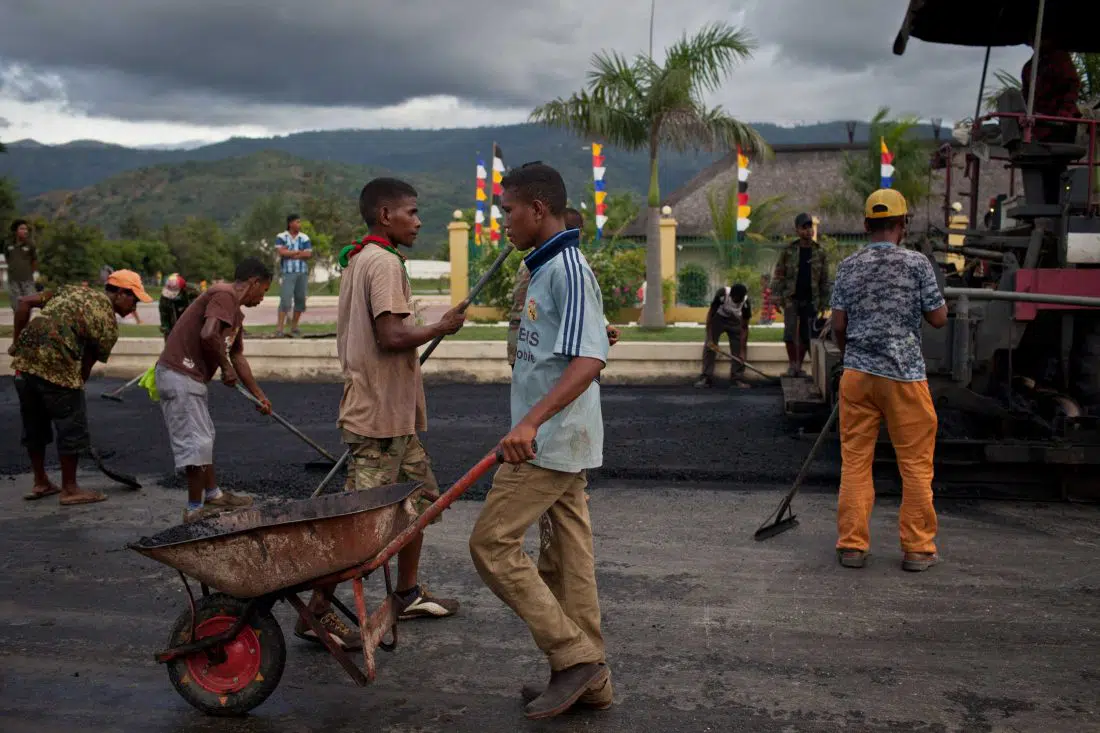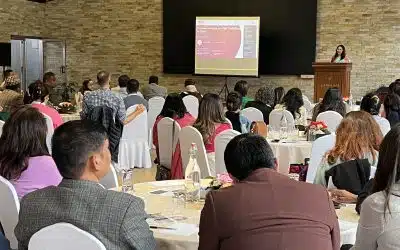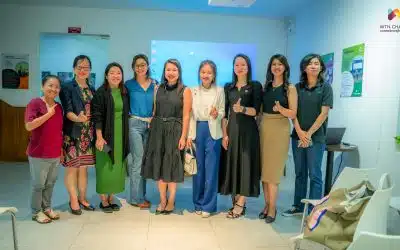InAsia
Insights and Analysis
Can Social Auditing Drive More Inclusive Development in Timor-Leste?
July 12, 2017
It is rare for a government leader to offer explicit support and resources for social auditing, a process in which citizens monitor government services and programs to ensure that they are inclusive and serve the needs of the people. But Timor-Leste’s Prime Minister Rui Maria de Araújo did just that at his swearing-in ceremony in early 2015.
A social audit examines different aspects of a public service or program, such as: levels of access to information, public involvement in planning, actual implementation compared to promised standards of service, financial management, and outcomes for the community. It includes the community in data collection and advocacy.

According to The Asia Foundation’s 2016 Tatoli! Public Opinion Poll, the need for public service improvements is high. Nearly two-thirds of respondents said the biggest issue facing them is poor roads and bridges. Photo/Conor Ashleigh
The prime minister announced four government programs of highest priority for social auditing —health, education, basic infrastructure, and agriculture—and established a Social Audit Unit (SAU) within his Office and a Memorandum of Understanding with the umbrella organization for NGOs in Timor-Leste, FONGTIL, to formalize a joint initiative between government and civil society. The SAU designated Social Audit Focal Points within 13 ministries, and facilitates government uptake of citizen feedback on public services.
While this top-down approach to encouraging citizen oversight is unique, it recognizes the weakening relationship between the state and citizens in Timor-Leste. A 2015 population-based survey revealed that only 47 percent trusted the national government “a lot or extremely.” Most said the best way to increase trust in government institutions was through improved service delivery.
The Asia Foundation’s 2016 Tatoli! Public Opinion Poll confirmed the need for public service improvements: 62 percent of respondents nationally said the most important function of government was provision of health services, and only 58 percent of respondents outside Dili reported that their health clinic “always” or “very frequently” had electricity and running water. Twenty-four percent said the government should devote most of its budget to education (in 2016, education was 9 percent of the national budget). In basic infrastructure (roads, bridges, and water pumps), 32 percent nationally observed that these government services were “very rarely” or “never” fixed. Finally, agriculture is crucial for Timor-Leste, for nutrition as well as diversifying its economy away from petroleum (coffee is its second largest export). Unfortunately, of the 71 percent nationally who worked on a farm, roughly a third could not access adequate fertilizer, water, or a farmer education program.
While the term “social audit” was new to Timor-Leste, the practice was not. Many NGOs had worked in this arena for years, using tools like citizen report cards to gauge satisfaction and access to services. In 2015 and 2016, The Asia Foundation, with Australian government funding, supported FONGTIL to establish the National Network for Social Auditing, the civil society counterpart to the SAU, and made grants to local NGOs to pilot social audits. In late 2016, the Foundation and FONGTIL began a European Union-funded program to further institutionalize social auditing, and support the government’s uptake of the civil society recommendations that would result.
The program brought civil society and government together to develop a Social Audit Handbook for Timor-Leste, which consolidated existing best practices into one reference and promoted a consistent and systematic approach to social auditing. The process revealed strengths and weaknesses, such as inadequate trust in government’s transparency and responsiveness, and in NGOs’ motives and ability in generating actionable recommendations. Ministry Focal Points, the SAU, and NGO actors who joined a handbook testing workshop in March 2017 described new-found respect for the capacity and commitment of the other.
Later this month, local NGOs will apply the handbook to new social audits, examining health, education, infrastructure, and agricultural services, and the implications for women, people with disabilities, and overall transparency. They will receive mentoring from The Asia Foundation and FONGTIL, and training on advocacy and community mobilization from experienced Timorese NGOs. They will collaborate with communities as well as government representatives to capture and convey the status and quality of services, and possible solutions, toward better outcomes for citizens.
Despite current enthusiasm among both government and civil society, the upcoming parliamentary elections on July 22, combined with inadequate legislation on access to information and the recent rejection of the Social Audit Decree Law (developed by the SAU in consultation with FONGTIL) by the Council of Ministers, raises the question of whether openness to such collaboration will continue beyond Prime Minister Rui Maria de Araújo’s term.
While we will continue to work alongside local civil society to bolster the quality and usefulness of social audits, their success ultimately relies on the government’s application of the findings to make tangible changes, and thereby realize not only positive outcomes for citizens, but increased efficiency, accessibility, and trust in state services.
The Tatoli! Public Opinion Poll and the Foundation’s initial work in social auditing were made possible through the generous support of the Australian government. The Improving Government Accountability Through Social Auditing program implemented by the Foundation and FONGTIL, including the handbook and upcoming grants, is made possible with the support of the European Union.
Tamara Failor is the program coordinator for the Improving Government Accountability Through Social Auditing program. Caitlin Leahy is a researcher at the Institute for Sustainable Futures at the University of Technology in Sydney (ISF-UTS) and helped develop the Social Audit Handbook for Timor-Leste. The views and opinions expressed here are those of the authors and not those of The Asia Foundation or its funders.
1 Comment
About our blog, InAsia
InAsia is posted and distributed every other Wednesday evening, Pacific Time. If you have any questions, please send an email to [email protected].
Contact
For questions about InAsia, or for our cross-post and re-use policy, please send an email to [email protected].The Asia Foundation
465 California St., 9th Floor
San Francisco, CA 94104
The Latest Across Asia
News
April 2, 2024
Program Snapshot
March 28, 2024
Program Snapshot
March 28, 2024
Program Snapshot
March 25, 2024

2024 Lotus Leadership Awards
Thursday, April 25, 2024, New York City
The Lotus Leadership Awards recognize contributions towards gender equality in Asia and the Pacific







great initiatives to enhance SA. Unlike many countries in the World, Government committing to enhancing Social accountability.